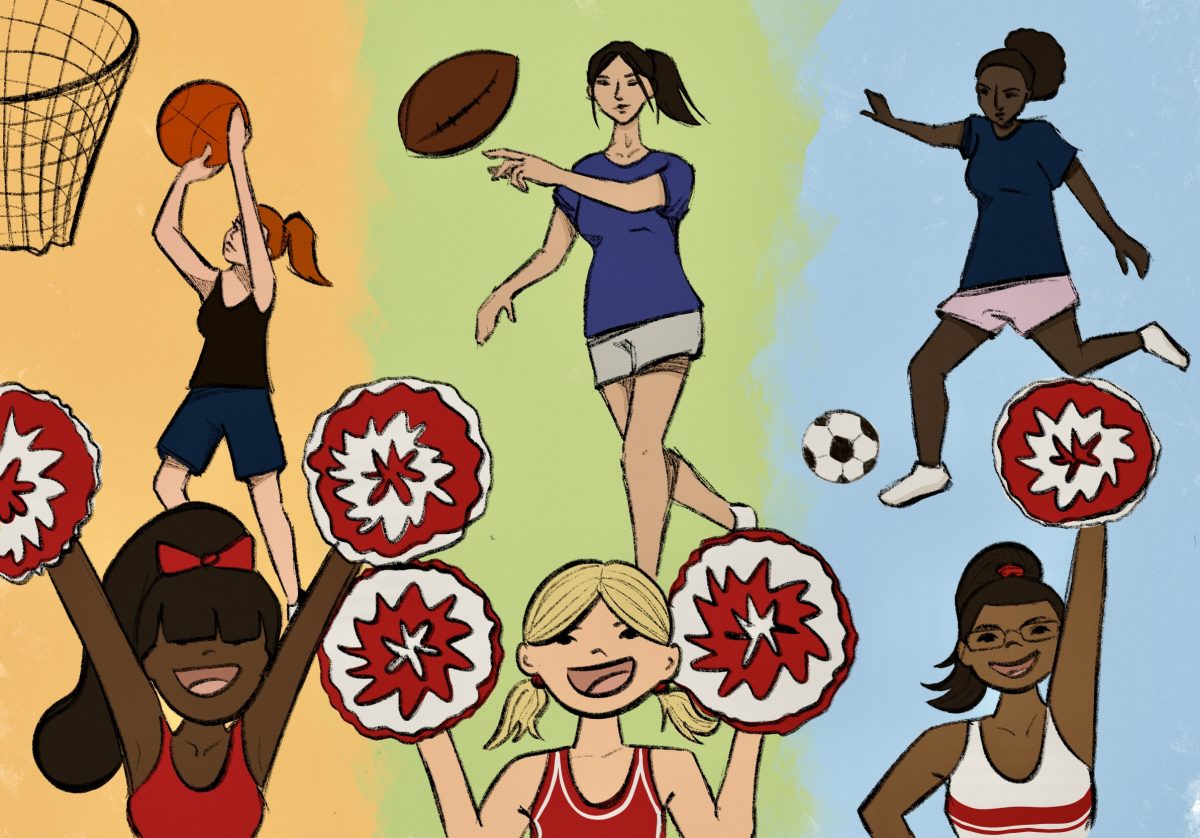Our campus is progressive in a multitude of ways and aims to combat negative stereotypes by fostering an accepting and equitable environment. However, one area of our school that seems to lack this are the cheer teams. While members of the cheer team may support feminism, female team’s captains and coaches still choose to not cheer for female sports.
Traditionally, cheer teams have typically been made up of girls with big ponytails and glowing smiles, jumping up and down on the sidelines of a usually sexist, male dominant sport. The goal is to support the players on the field and encourage the audience at games to show enthusiasm.
Supporting the male dominated Campo football team is exciting and a prominent part of social culture. Continuing this tradition is great as long as it isn’t rooted ideologically in the belief that females exist to cheer on males and can’t have their own independent success in life.
Cheerleaders seem to have succeeded in creating a new ideology around this, finding ways to encourage feminism within the team. However, expressing feminism through their actions is just as vital to contributing to the positive culture we are trying to cultivate on campus.
Junior cheer co-captain Adriana Carranza said the reasoning for not cheering at girls sports, despite 80 to 90 percent of the team supporting it is “they don’t have a big enough fan base so it doesn’t make as much sense to cheer for them…[cheer] doesn’t have enough time…[cheer] would lose practice time…and it’s hard to communicate with the teams [to coordinate cheer coming], they don’t reach out to us as much.”
Cheering for girls sports is essential regardless of these reasons. The cheer teams need to make the time and do their part to help build up the female athletic programs. The comp cheer team could sacrifice some practices to accommodate cheering at some of the flag football home games. The sideline cheer team could choose to cheer at fewer male basketball games and instead cheer at some female games to create a balance between the two.
Displaying support for these female teams regardless of the lack of an audience could help bring attention to these programs and encourage more fans to show up. Junior and varsity girls basketball player Reagan Shum believes, “having [cheer at games] would be a sign that we’re a team and should be supported…it’d be really nice.” She feels “girls basketball doesn’t get the same support as boys basketball…it’s kind of underground…a lot of people don’t know about girls basketball.” Shum also believes that if the cheer team showed up to regular season games players would “feel more of a sense of importance as a team because Campo is coming to support you, you see cheer at football games and boys basketball games but you hardly ever see them at our games.”
Senior varsity basketball player Julia Erickson-King said “It makes sense girls basketball at first didn’t get as much support and funding as boys because we were smaller…but the program is growing and if we’re going to match [the size of the boys program] then we should get the same support…if the cheer team came it would be great to have the extra support and I think it would make students more excited to come.”
Junior flag football player Grace Allen said, “It would be fun to have the cheerleaders there [at home games]..it could help encourage people to come and support [flag] football.”
Additionally, cheering at the events wouldn’t be a loss or waste of time because it gives the cheer team more opportunities to practice their routines formally. Castanza said “this could be an incentive and I’m going to try and get us to cheer at some flag football games.” Helping to increase the confidence and feeling of acceptance the female players experience is worth losing a few normal practices.
Sophomore cheerleader Isla Fitzmaurice believes, “It wouldn’t be that hard [to cheer for female teams], we could even add an extra practice if needed or more time to our practice to help allow us to cheer for girls sports,” she said. There are ways to combat the current obstacles preventing the cheer teams from cheering at female sports to help pursue feminist values at Campo.



